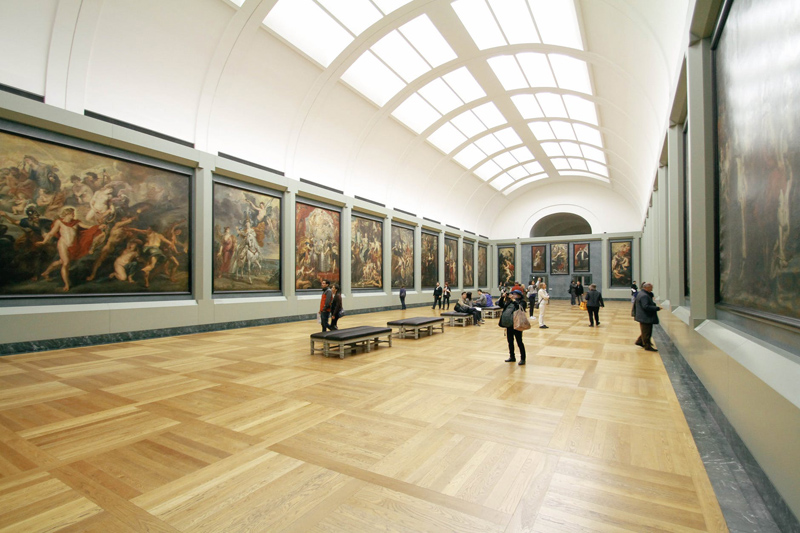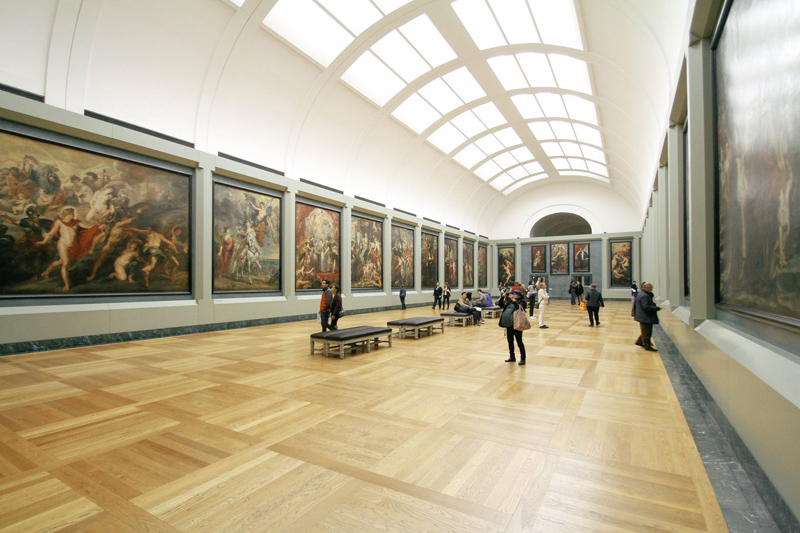Internship Curriculum Suggestions

Although my museum has always had interns, a few years ago we revamped our internship program to provide some context for the hands-on projects our interns worked on.
It seemed as though they needed additional background in the museum field in order to fully understand how a museum works, how to handle artifacts, and how to create exhibitions, educational tours and public programs. (All of our interns are undergraduate college students, and most of them have never worked in a museum before)
Most internships last for 10-12 weeks, depending on the length of a semester. The formal assignments in our internship program last for 8 weeks and cover the basics of a museum career.
Each week our interns read about a specific category of museum work. Here are some suggestions to help you create assignments for your internship program:
Week 1: Introduction to the Museum
Interns tour the museum, including storage areas, office spaces and other “non-public” areas.
Readings include selections from History Museums in the United States: A Critical Assessment by Gary Kulik, The Museum Experience by John H. Falk and Lynn D. Dierking and Introduction to Museum Work by G. Ellis Burcaw
Week 2: Collections Management
Interns learn how to use the museum’s database and how to catalog, number and photograph artifacts.
Readings include the National Park Service’s Conserve-O-Gram “ Use of Acryloid B-72 Lacquer for Labeling Museum Objects” and selections from The Care of Antiques and Historical Collections by A. Bruce MacLeish
Week 3: Exhibitions Part I
Interns tour temporary and permanent exhibits on their own and receive examples of exhibit design.
Readings include selections from Introduction to Museum Work by G. Ellis Burcaw and my ebook “How to Create an Exhibition on a Shoestring Budget”
Week 4: Exhibitions Part II
Readings include selections from Exhibit Labels by Beverly Serrell
Week 5: Education Part I
Interns follow tours of all museum areas, preferably given by different staff members and docent for varying age groups.
Readings include selections from The Good Guide: A Sourcebook for Interpreters, Docents, and Tour Guides by Alison L. Grinder and E. Sue McCoy
Week 6: Education Part II
Readings include the pamphlets “Excellence & Equity” and “Curators on Excellence & Equity” produced by the American Association of Museums and “True Needs, True Partners: Museums Serving Schools” produced by the Institute of Museum and Library Services
Week 7: Grant Writing OR Conservation
Interns choose which topic they would like to learn more about.
Readings include handouts from a grant writing workshop (contact a museum studies graduate program if you have not attended one) and selections from Conservation Concerns: A Guide for Collectors and Curators
Week 8: Historical Memory
Readings include selections from Mickey Mouse History by Mike Wallace
It seemed as though they needed additional background in the museum field in order to fully understand how a museum works, how to handle artifacts, and how to create exhibitions, educational tours and public programs. (All of our interns are undergraduate college students, and most of them have never worked in a museum before)
Most internships last for 10-12 weeks, depending on the length of a semester. The formal assignments in our internship program last for 8 weeks and cover the basics of a museum career.
Each week our interns read about a specific category of museum work. Here are some suggestions to help you create assignments for your internship program:
Week 1: Introduction to the Museum
Interns tour the museum, including storage areas, office spaces and other “non-public” areas.
Readings include selections from History Museums in the United States: A Critical Assessment by Gary Kulik, The Museum Experience by John H. Falk and Lynn D. Dierking and Introduction to Museum Work by G. Ellis Burcaw
Week 2: Collections Management
Interns learn how to use the museum’s database and how to catalog, number and photograph artifacts.
Readings include the National Park Service’s Conserve-O-Gram “ Use of Acryloid B-72 Lacquer for Labeling Museum Objects” and selections from The Care of Antiques and Historical Collections by A. Bruce MacLeish
Week 3: Exhibitions Part I
Interns tour temporary and permanent exhibits on their own and receive examples of exhibit design.
Readings include selections from Introduction to Museum Work by G. Ellis Burcaw and my ebook “How to Create an Exhibition on a Shoestring Budget”
Week 4: Exhibitions Part II
Readings include selections from Exhibit Labels by Beverly Serrell
Week 5: Education Part I
Interns follow tours of all museum areas, preferably given by different staff members and docent for varying age groups.
Readings include selections from The Good Guide: A Sourcebook for Interpreters, Docents, and Tour Guides by Alison L. Grinder and E. Sue McCoy
Week 6: Education Part II
Readings include the pamphlets “Excellence & Equity” and “Curators on Excellence & Equity” produced by the American Association of Museums and “True Needs, True Partners: Museums Serving Schools” produced by the Institute of Museum and Library Services
Week 7: Grant Writing OR Conservation
Interns choose which topic they would like to learn more about.
Readings include handouts from a grant writing workshop (contact a museum studies graduate program if you have not attended one) and selections from Conservation Concerns: A Guide for Collectors and Curators
Week 8: Historical Memory
Readings include selections from Mickey Mouse History by Mike Wallace
You Should Also Read:
Starting an Internship Program
How to Be a Good Museum Intern
Interview Tips for Finding a Museum Job

Related Articles
Editor's Picks Articles
Top Ten Articles
Previous Features
Site Map
Content copyright © 2023 by Kim Kenney. All rights reserved.
This content was written by Kim Kenney. If you wish to use this content in any manner, you need written permission. Contact Kim Kenney for details.



